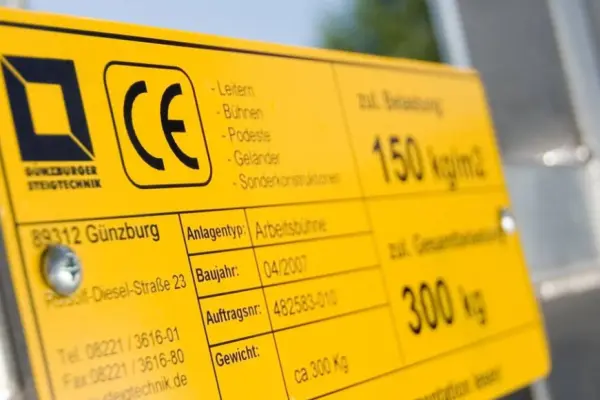
DEKRA Product Testing
A CE certificate is crucial for the safety of your products

DEKRA Product Testing
A CE certificate is crucial for the safety of your products
CE certificate
What you need to know about CE certification and European regulations
All products introduced to the European market must comply with various laws and regulations. To demonstrate that a product meets the required regulations, almost all products must bear a CE marking. CE stands for Conformité Européenne.
Self-declaration or Notified Body?
The term "CE certificate" is often used, but a "certificate" is not actually required for a marking of CE, except for high-risk products such as elevators, medical equipment, or certain toys. In these cases, a CE-certificate issued by a Notified Body is necessary. This is identified by the number following the mark of CE. For other products, a self-declaration from the manufacturer is required to apply a CE marking.
For high-risk products, a CE test conducted by an accredited body is mandatory. In other cases, a manufacturer can draft a declaration containing the necessary information such as a risk analysis and a technical dossier. This process is time-consuming and requires specific knowledge and testing facilities. Many manufacturers outsource this process to a third party, regardless of whether the product is high-risk. DEKRA is an accredited body you can engage to prepare test reports that will be part of a technical dossier for your CE certificate.
Importance of CE certificate
A CE certificate is crucial for product safety. It ensures compliance with regulations. CE marking is the minimum legal requirement that manufacturers must meet for laws and regulations within Europe. What is especially important for CE is the test reports: which reports are included and who prepared them?
Is CE testing mandatory?
A marking of CE is mandatory for almost all products intended for the European market. For some product groups, a certificate of CE issued by a Notified Body is required. The guidelines for these product groups are set by the EU. Product groups that must comply with these guidelines include:
- Construction products
- Electronic equipment
- Transportation means
- Medical devices
- Electrical toys
- Personal protective equipment
- Measuring instruments
Even if the product is manufactured outside the EU, the importer, distributor, or any party within the sales chain must ensure the product meets CE requirements and include this in the CE compliance dossier.
DEKRA for your CE certificate
Do you need to have your CE certificate carried out by an independent body, or do you want to know if your products comply with CE guidelines? DEKRA is here for you. We test your product so that you can provide it with the marking of CE. Want to know more about a CE certificate? Feel free to contact one of our experts.
2 Results
Nov 14, 2024
Digital & Product Solutions / Testing and certification of products
A CE marking indicates that the products have been tested in accordance with CE marking guidelines and comply with all safety requirements applicable under EU legisl
View article
Oct 17, 2023
Digital & Product Solutions / Testing and certification of products
In this blog you will read more about the CE certificate. We explain what a CE certificate means, what its purpose is and what steps you need to take.
View article